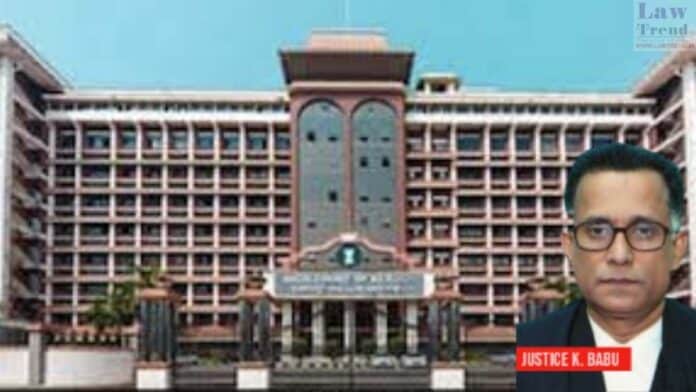The Kerala High Court on Thursday ordered a fact-finding inquiry into the allegation of leakage of evidence from a memory card, in the actress assault case of 2017 in which actor Dileep is also an accused.
The High Court, while directing the District and Sessions Judge, Ernakulam, to carry out the inquiry, said, “we failed to protect the victim’s interest which resulted in the violation of her fundamental Constitutional right”.
Justice K Babu said only a probe into the allegation of unauthorised access of the memory card will remove “the cloud on the judicial system”.
“It will only maintain the majesty of the judicial process and the purity of the legal system. The offences alleged pertain to public justice. Therefore, the obligation of the system is more profound,” the court said.
The court also laid down the guidelines to be followed when handling sexually explicit materials due to the absence of rules to guide law enforcement agencies, experts and courts on handling sensitive electronic records containing such content.
It also requested the central and state governments to “formulate necessary rules for the safe handling of electronic records containing sexually explicit materials”.
The order came on the plea filed by the survivor seeking the intervention of the high court and a probe into the alleged leak of evidence.
The court noted that on three occasions, the memory card was connected to computer systems installed with devices capable of copying or transferring the electronic record or mutating the contents.
“The victim alleges that the contents of the video footage were copied and transmitted. The emotional and psychological harm being suffered by the victim is beyond imagination,” it said.
Directing the District and Sessions Judge, Ernakulam to inquire into the allegations of unauthorised access to the memory card and copying and transmitting of its contents, the court said the judge was at liberty to seek the assistance of any agency, including the police, for conducting the probe.
“In the inquiry, if the commission of any offence is disclosed, the District and Sessions Judge shall proceed as provided in the Code of Criminal Procedure, 1973,” the High Court said in its 70-page judgement.
It also directed that the inquiry should not affect the trial of the sexual assault case going on in a sessions court and the probe shall be completed within one month from Thursday, December 7.
In the detailed guidelines issued by the court on handling of sexually explicit materials, it said that when a law enforcement agency seizes or recovers such a record, it should be done with “utmost caution” so as to prevent any chance of destruction of its contents.
“This process should be conducted maintaining the highest level of secrecy and privacy regarding the contents. The process shall be documented separately in a mahazer,” the court said.
The guidelines lay down how such materials should be packed, sealed, labelled, recorded in a register, stored and removed for being placed before the court.
The HC also laid down the measures to be taken by courts while handling such material and it included maintaining a register of all such evidence, examining it for tampering when presented during trial, its storage in court and how any authority should be allowed to examine it.
“No copies of such sexually explicit electronic records, including newly created electronic records as a result of scientific examination, shall be provided to any person, including the accused, in the said case,” the court said.
It also laid down the guidelines for examination of the material by the accused or their lawyers during the trial.
The court also chalked out the measures to be adopted by examining authorities when handling such sexually explicit materials.
Also read
During the hearing of the survivor’s plea seeking probe into the alleged leak of evidence, Dileep had claimed it was a move to delay the judgement in the 2017 sexual assault case.
The Crime Branch had earlier told the court that a memory card, which was crucial evidence in the case and was submitted before the court, was forwarded to the forensic laboratory but was found with a change in the hash value of the card, which indicates unauthorised access.
The Crime Branch, which is probing the case, had approached the High Court against a trial court order halting the probe on the alleged leaking of evidence from the court during the trial.
The actress-victim, who has worked in Tamil, Telugu and Malayalam films, was abducted and allegedly molested in her car for two hours by some persons who had forced their way into the vehicle on the night of February 17, 2017 and later escaped in a busy area.
The entire act was filmed by those persons to blackmail the actress.
There are 10 accused in the 2017 case, including actor Dileep, and police have arrested seven. Dileep was arrested subsequently and released on bail.




